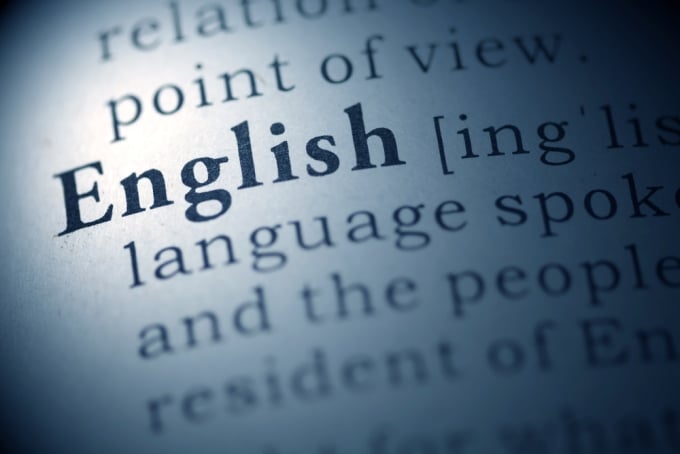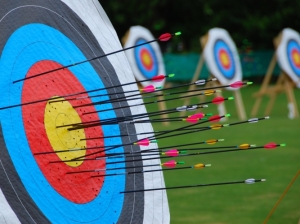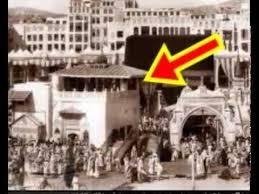،الحمد الله حمد الشاآرين، والصلاة والسّلام على المبعوث رحمة للعالمين،
وهادياً للناس أجمعين. صلاةً وسلاماً دائمين إلى يوم الدين،
وآله وصحبه ومن تبعهم بإحسان، وسلم تسليماً آثيراً،
أما بعد:
نفسالمؤمنمعلقةبدينهحتىيقضىعنه، رواه مسند احمد جلد3 ص442 المعنىأنروحالمؤمنمحبوسةعندخولالجنةمدةدوامالدينعليهحتىيقضىعنه(الفتح الربانى جلد15 ص91
(The Concept of Borrowing Money In Islam (احكامقرض)
Allah has stated in the Holy Qur’an: ‘O You Who Believe! When you contract a debt for a fixed period, write it down…’ (s2, v282)
It is the order of the Holy Qur’an, when the matters of borrowing money arise, whether it be for small or large amounts, it should be written down in a contract. Also, if possible this transaction should take place in front of two witnesses, so that there is no dispute at a later stage. Some Scholars state it is preferable and some state it compulsory to write down a loan transaction. If for any reason, in the future there is a dispute, this written document can be produced as proof.
In the Shari’ah, it is not a sin to take a loan (non-interest) in the state of necessity. However, to not return the borrowed money is oppression and a sin. The Prophet stated ﷺ: ‘A Muslim is the brother of another Muslim. He should not oppress his brother or hand him over to the enemy. The individual who fulfils the need of his Muslim brother, Allah will fulfil his need. That individual who removes a difficulty from his Muslim brother, Allah will remove his difficulty on the Day of Judgement.’ (Sunan Abu Dawood vol 2, p314)
The taking of a loan is not something that a respectable individual would do without necessity, to create a burden upon themselves. When it is a necessity, then people should seek to assist their relatives and Muslim brothers, according to one’s capability.
The Virtue of Lending Money: Sayyidina Anas bin Malik RA related that the Prophet ﷺ stated: ‘During the journey of Me’raj, I saw written on the door of Jannah: ‘The one who gives charity is rewarded tenfold. The one who gives a loan is rewarded 18 fold.’ I asked Jibreel : ‘Why does the one who gives a loan get rewarded more?’ Jibreel replied ‘The one who gets charity (they usually posses a small amount already) and the one who seeks a loan only does so when he is in dire necessity.’ (Sunan Ibn Majah, P175)
Hakim Ul Ummah Shaykh Ashraf Ali Thanwi RH stated: ‘In the Ahadith, the virtue of giving a loan is for those who are truly needy. If an individual seeks a loan for wasteful spending and utilising it in sinful acts, then a loan should not be given to them.’ (Kamalate Ashrafiya, p102)
The One Who Seeks a Loan Should Keep His Intention Pure: At the time of taking a loan, the borrower should be truly concerned to repay the loan within the stipulated contracted time. If the borrower cannot repay the loan in a lump sum, he should make it clear beforehand, how he wishes to repay the loan. In this way there will be no difficulty placed upon the lender. The individual who takes his loan with these points in mind, his loan will be repaid within the stipulated time and he will be freed of this burden In sha Allah.
Those who take a loan with a bad intention, Allah will cause him humiliation in this world and the hereafter. Sayyidina Abu Hurairah related that the Prophet ﷺ stated: ‘The person who takes wealth from people with the intention of repaying it, Allah will assist him in the repayment of that loan. The person who takes wealth from people with the intention of squandering it, Allah will cause him destruction.’ (Sahih Bukhari, Musnad Ahmed, vol 3, p285)
Allamah Abdul Aziz Khawli االله رحمه writes: ‘Beware! do not take a loan without necessity. If you ever have to take a loan, then keep the firm intention and make effort to repay it. Do not dare to take a loan from people with 2 the intention of squandering their wealth and usurping it. This will only lead to your destruction and humiliation in this world and the next.’ (Al Adab un Nabawi, p49) It is not correct for the debtor to perform Nafil Sadaqah or free slaves. However, it is more important for him to strive to settle his debt as quickly as possible. (Fathul Bari Sharah Bukhari, vol 10, p128)
There are such severe warnings in the Ahadith with regards to those who misuse the wealth of others. This is for those businessmen who run a business, take a bank loan to fill their pockets with insurmountable wealth and then declare bankruptcy, writing off all the money they have borrowed and stored away. The Concern of the Companions to Repay Loans: The Companions of the Prophet were aware of the warnings issued by the Prophet ﷺ for not being careful in the matter of repayment of loans. Therefore, they were very concerned of repaying loans as soon as possible. If for some reason, they were unable to pay back a loan in their lifetime, they would bequest to their relatives to repay any specific loan immediately after their passing. Sayyidina Abdullah ibn Umar related, The Prophet ﷺ stated: ‘All the wrongs of a martyr are forgiven, except his debts.’ (Sahih Muslim/ Mishkaat p254)
2. When Sayyidina Zubayr , took part in the battle of the camel, he called his son Abdullah bin Zubayr and told him: ‘My greatest concern is for the settlement of my debts. If I am to be made a martyr, sell our land and repay my debts. If you are in need, seek the help of Allah . Sayyidina Abdullah bin Zubayr carried out this order to the fullest of his capability, to the extent that he announced for 4 consecutive years at the time of Hajj: ‘Whosoever has anything owing from my father, come and seek its repayment.’ (Sahih Bukhari, vol 1, p442)
1. In the last moments of the life of Sayyidina Umar , after being stabbed in the Masjid of the Prophet ﷺ, he (Sayyidina Umar ) called his son, Abdullah ibn Umar and said to him: ‘The first thing you must be attentive to is the repayment of my loans. They are to be settled by my family. If they are unable to settle them, seek assistance from Adi bin Ka’b . If he cannot assist, seek help from the Quraysh.’ (Sahih Bukhari, vol 1, p524)
Imam Muhammad االله رحمه stated: ‘We accept the saying of Sayyidina Ibn Umar RA, there is no Harm in doing this, when there is no condition stipulated from the beginning. Therefore in an agreement whereby a surplus amount is agreed by the creditor or by the debtor (in the form of goodwill) from the beginning, the transaction would be deemed Haram (prohibited) and the extra payment termed ‘interest’. (Muwatta Imam Muhammad, p358)
3. When Sayyidina Abdullah bin Amr bin Haram , went out for the battle of Uhud, he called his son Jabir and told him: ‘I am going to be martyred in this battle, whatever debts I have remaining, settle them.’ Sayyidina Jabir carried out this request of his father, he (Jabir ) would state: ‘I am pleased if I do not return to my family with even a date, after having settled my father’s debt in full.’ (Sahih Bukhari, vol 2, p580)
The Creditor Should be Lenient to The Debtor: Allah has stated in the Qur’an: ‘And if the debtor is in a difficult situation, then grant him time until it is easy for him to repay, but it you remit it by way of charity, that is better for you if you did but know.’ (s2, v280)
It is clear from the above verse of the Qur’an that if the debtor is unable to repay a loan easily, to forgive him of repayment is a great form of Charity. Hakim Ul Ummah Shaykh Thanwi RH stated: ‘If your debtor is a poor person, do not worry him. Rather, give him time or forgive a part or the entire debt. Allah will as a result of this, protect you from the severity of the Day of Judgement.’ (Ta’leem Ud Deen, p37)
Sayyidina Hasan binAli forgave the entire loan of an individual that was due to him.(Sahih Bukhari, vol 1, p354)
The Prophet ﷺ encouraged Sayyidina Ka’b bin Malik RA to show leniency to a debtor. Due to this, Ka’b bin Malik reduced the debtors’ loan by half. (Sahih Muslim, vol 2, p17) If the debtor can not repay the settled amount on time then he should not try to distance himself from the creditor. Otherwise, the trust of repayment will diminish, which may be detrimental. Sayyidina Abu Qatada RA related, the Prophet ﷺ stated: ‘That person who desires that Allah relieves him of difficulty and worry on the Day of Judgement, let him grant respite or forgive a debtor.’ (Sahih Muslim, vol 2, p18) Sayyidina BuraidaRA related the Prophet ﷺ stated: ‘The individual who grants respite to a debtor in difficulty, he will have the reward of giving Sadaqah written for him for every day he grants respite.’ (Sunan Ibn Majah, p174/ Musnad Ahmed, vol 3, p281) 3 The debtor committing Major sin by withholding repayment when sufficient funds are available: Allah has stated in the Holy Qur’an: ‘The Curse of Allah is on the Zalimun (Polytheist and wrong-doers)’ (s7, v44) Those people who, after having the means to repay a loan in full, do not do so, they are sinful of a Major sin. The money obtained from this unclean saving will be accursed and as such will be a means of destruction in the debtor’s temporary life in this world as well as the Hereafter. The Prophet ﷺ stated: ‘The individual who has the means to repay a loan but does not do so, this is oppression.’ (Sahih Bukhari, vol 1, p323)
Sayyidina Anas related, the Prophet stated: ‘Jibrail informed me to not pray the funeral prayer of that person who has outstanding debts.’ The Prophet then stated: ‘The debtor remains imprisoned in his grave until his debts are settled.’(Musnad Abi Yu’la, vol 3, p399) The inheritors of the estate should in the first instance after paying for funeral expenses try to fulfil the debt owed by the relative who has passed away. Sayyidina Abu Hurairah related that the Prophet stated: ‘The believer’s soul is withheld until the repayment of his debt’. (Musnad Ahmed, vol 3, p442)
Shaykh Ahmed Abdul Rahman Al banaa االله رحمه has explained in regards to the above ‘This implicates that the soul does not reach Heaven until the appointed debt is repaid.’ (Al Fathul Rabbani, vol 15, p91)
The Prophet ﷺ stated: ‘The creditor has the right of being firm in a speech to get back their wealth.’ (Sahih Bukhari, vol 1, p321) It is not right for the debtor to fight with the one who has done them a favour. What is most appropriate is when the time is right, seek respite from the creditor, explaining his (the debtors) situation.
Repay The Loan in a Beautiful Manner: Sayyidina Abu Rafi RA related, the Prophet ﷺ took a camel from an individual by way of a loan. The Prophet ﷺ gave this individual back a camel better than that which he had taken from him. The Prophet ﷺ stated: ‘The best person is he who repays his loan in a beautiful manner.’ (Sunan Abu Dawood, vol 2, p119)
Care, therefore, needs to be taken as in our time, there are many liars who given the status of Ulema (rather Ulema soo) mislead masses by providing false conjecture and misinterpretation on this order. Even today, if the creditor and debtor in accordance with Qur’an & Sunnah fix their ways and are clean as well as honest in their dealing than surely they will be saved from the curse of interest. O Allah! Save us from Haram and make what is Halal sufficient for us and through your Mercy and Blessings do not make us needy of others. Amin! (Jami Tirmidhi, vol 2, p195) (واالله يوفقنا لما يحب وترضى)
Sayyidina Ibn Umar RA took a loan of a few Dirhams from an individual by way of a loan. When he repaid this loan, he returned a greater amount to him. He (the creditor) stated: ‘You are giving me back more than I gave you.’ Sayyidina Ibn Umar said RA: ‘I am aware of that, but I have given it to you out of happiness. You did not request it from me.’ (Muwatta Imam Muhammad, p355)
In Islam interest is considered absolutely Haram. There is no refutation of this order as a detailed account regarding this matter is set forth in the Holy Qur’an (from Surah Al-Baqarah s2, v275-v280).
(محمد يوسف ڈنكا (عفا االله عنه)
Mufti Muhammad Yusuf bin Yaqoob Danka
01/ / 1431 Hijrah- 16. 04. 2010.






 1 From the collection of Sahih Muslim
1 From the collection of Sahih Muslim

 Praise be to Allah.
Praise be to Allah.

